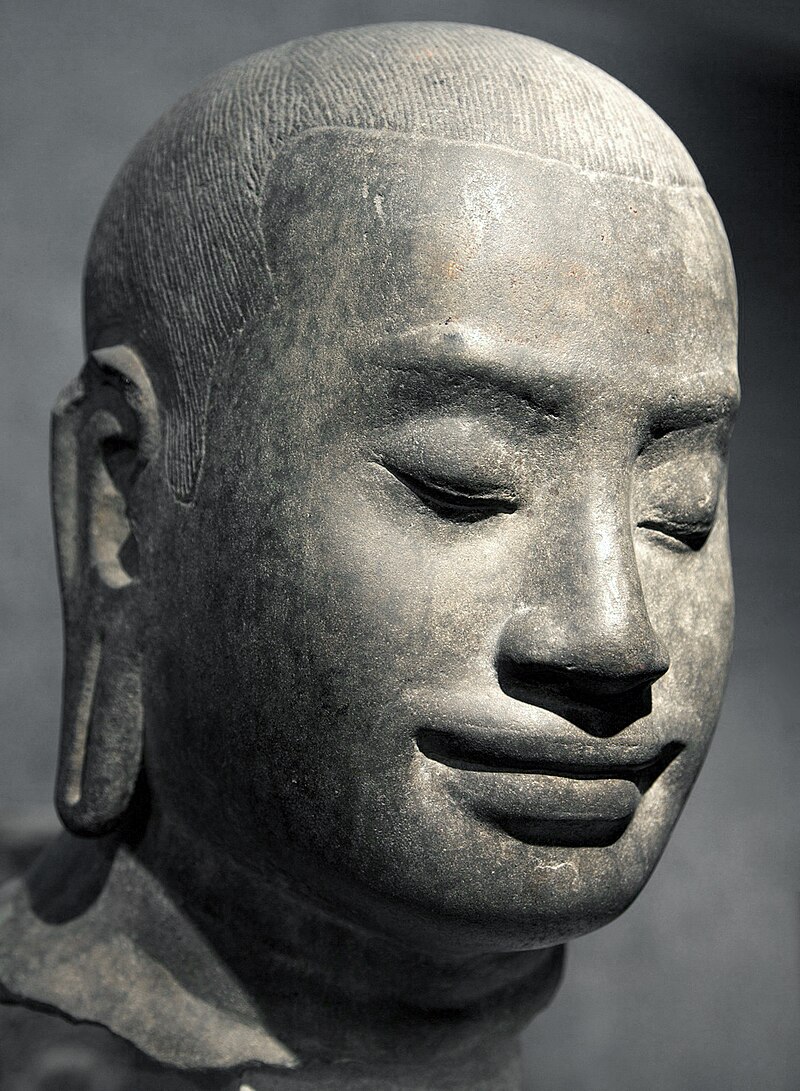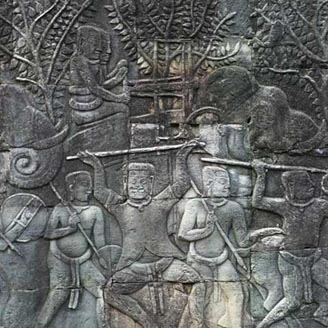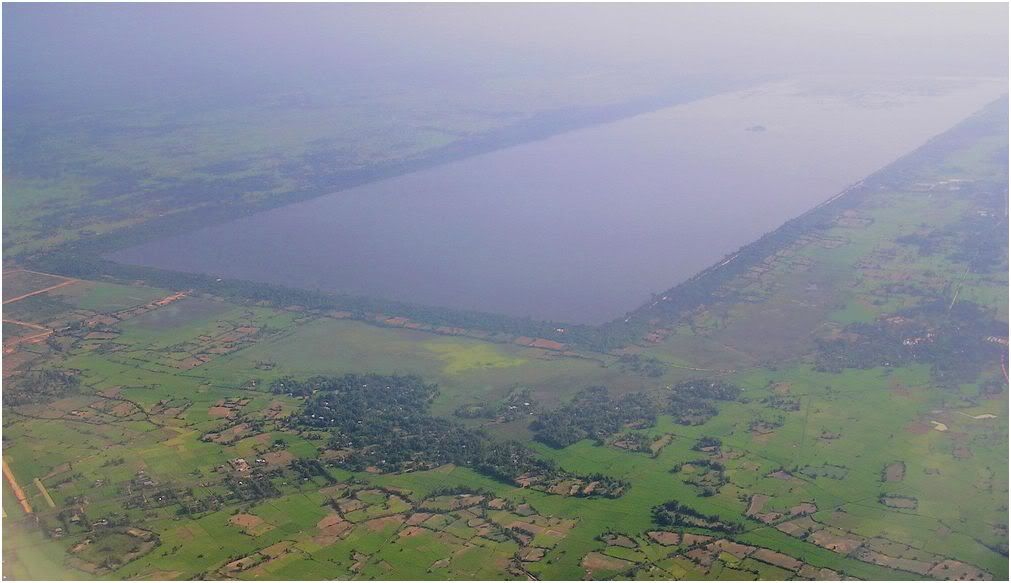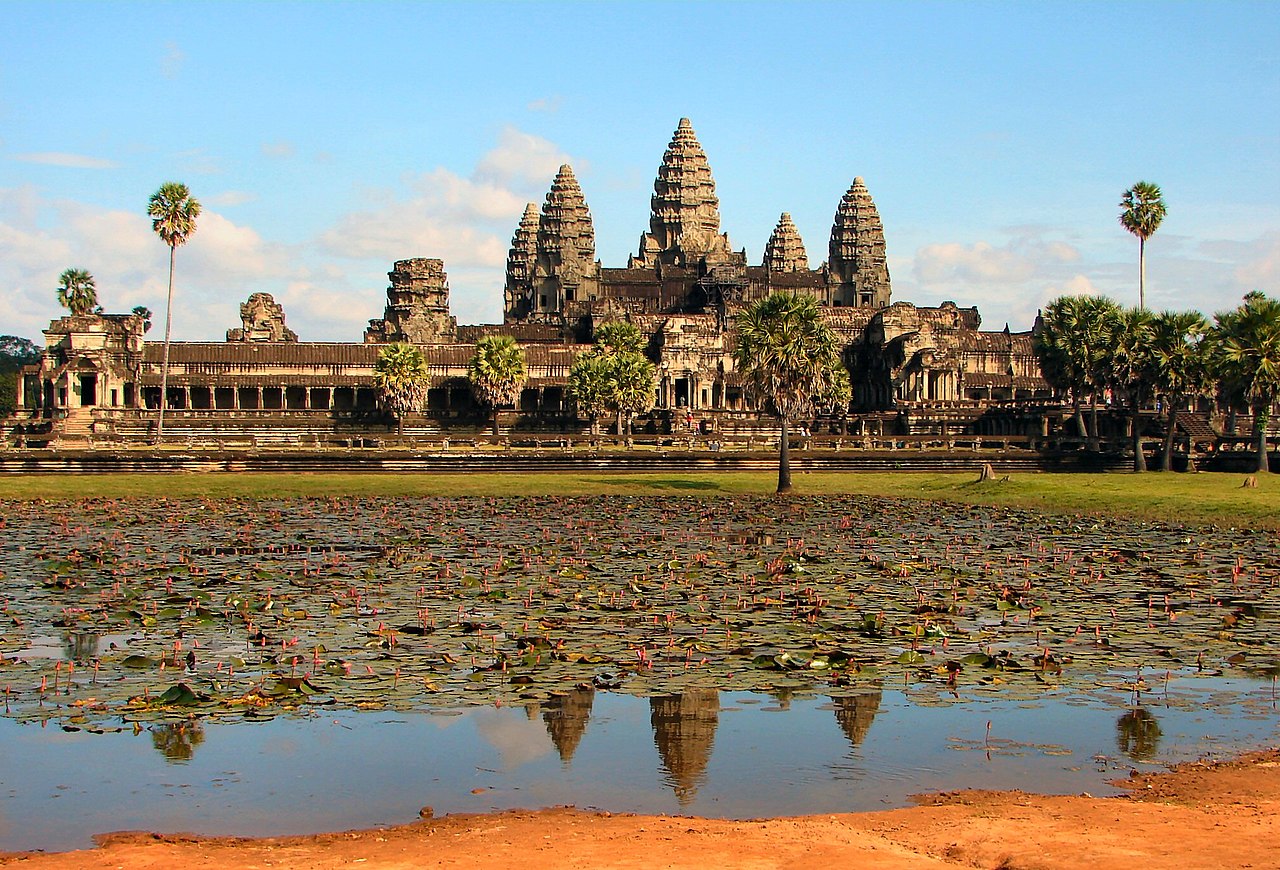Since we're getting a new southeast Asian civ, and there's some speculation it might be the Khmer, I'll give my interpretation of what I'd like to see for them. I've seen already a couple of good concepts for them in this thread, but here's what I'd like to see:-
The Khmer Empire
Famous across the world for the architectural marvel of Angkor, the Khmer were an impressive civilisation both in terms of the stunning architecture of their temple complexes and their intricate reliefs, but also their large scale urban planning and infrastructure, from the vast barays to their irrigation channels and the moat around Angkor Wat.
My design is for a coherent civ that rewards huge urbanisation - faster district construction, and the food and housing from barays to support them. The ballista elephant gives them an edge in medieval battles, whether defensive or offensive, and they have a solid basis of faith to develop and benefit from a religion.
Leader - Jayavarman VII
Capital - Angkor Thom
Jayavarman founded the last great capital of the Khmer at Angkor, a sprawling city with a walled centre right at the heart of his and previous ruler's great monuments.
Musical Theme - No idea for any specific piece, but the instrumentation should be based on the pinpeat, the traditional Cambodian orchestra whose music accompanies religious ceremonies, plays and court dances.
Leader Ability - 102 Hospitals
The base district cost is reduced by 10%. Gain a faith bonus each time a district is placed.
Jayavarman undertook a prodigious and rapid building program during his reign. Motivated by his Buddhist faith, he built 102 hospitals, 121 rest houses, and temples in honour of his mother and father. While his predecessor by 100 years, Suryavaraman II is the builder of Angkor Wat, we already have Qin as a wonder builder. I want to see Jayavarman as a builder focussed on infrastructure and a district production boost and incentive, which helps to counteract the increasing district cost as the game progresses, seems like the best way to do that.
Leader Agenda - Mahayana
Likes to build as many districts as possible and increase amenities for his people. Dislikes civilisations with low amenities in their cities and many unimproved tiles.
Jayavarman was a Mahayana Buddhist, dedicated to alleviating the suffering of his people and achieving enlightenment for all. An inscription on one of his many building projects claims "He suffered from the illnesses of his subjects more than from his own; the pain that affected men's bodies was for him a spiritual pain, and thus more piercing." It is fitting then that his in-game representation strives to build as much as the real king, and has contempt for other civs whose populations do not benefit from such a magnanimous ruler.
Unique Ability - Temple Mountains
Holy Site districts gain an adjacent bonus from sources of fresh water and barays, in addition to the usual mountain and forest adjacency bonuses. Holy Site buildings gain +1 culture.
The Khmer are of course best known for their lavishly decorated temples, which were built to resemble the holy Mt Meru, home of the Hindu gods. They also made extensive use of large water features, such as moats, which represented the oceans.
Unique Unit - Ballista Elephant
The iconic unit of the Khmer in Civ IV, and more recently, AoE2's Rise of the Rajas expansion returns! How could it not?
This is a heavy and hard to kill (but slow) cavalry unit, replacing the Knight with a powerful ranged attack that can decimate units in the field. I've seen ideas in this thread that the ballista elephant should replace the catapult, but it's a ballista! Like the hwach'a if and when we see Korea, it should be primarily an anti-unit weapon. It should allow you to dominate the battlefield in the medieval era, whether defensive or expansive, but it's not exactly a rush tactic.
War elephants were a formidable part of Khmer armies, as with many in the region. The distinctive mounted ballistae, or more likely, large chinese-style double-crossbows appeared on their backs in the late Khmer empire, possibly copied from the neighbouring Champa.
Unique District - Baray
The Baray replaces the Aqueduct district, and likewise needs a source of water nearby and provides additional housing to the city. It also provides faith, and farm tiles adjacent to the baray gain +1 food. The baray thus not only provides additional housing, but also the food to fill it. Appears like a large rectangular reservoir, surrounded by a scattering of buildings, with a temple on an island in the middle
Barays are huge reservoirs, the most famous being the West and East Barays either side of the waled city of Angkor Thom. It is not known whether their function was as a reservoir for irrigation purposes, or whether they were solely meant to symbolise the sacred sea (just as the striking Khmer temples symbolise sacred mountains). So this district rolls both features into one, and also represents the wider canals and irrigation channels the Khmer built.
And while I'm here, they should be bundled with the obvious wonder:-
Angkor Wat
Must be built adjacent to a lake tile.
Provides +4 faith and + 4 culture. This city gains the Follower beliefs of all religions present in the city.
So much an icon that it appears on Cambodia's flag, this site pretty much put the country on the Tourist map in recent years, and is a huge part of the nation's identity, hence the culture boost. I'm not sure about the follower belief ability but I'd like some way of representing its history as both a Hindu and Buddhist site. Perhaps it could alternatively double the Follower beliefs of the city's religion (if applicable).
Tonlé Sap
And for good measure, the lake that was the lifeblood of the Khmer civilisation, and a large part of Cambodia to this day, would be a great Natural Wonder, and already is a great mod by @sukritact 


 . Why would I possibly allow a rival Portugal to build a Feitoria in my empire? It should provide a gold or other bonus to the host.
. Why would I possibly allow a rival Portugal to build a Feitoria in my empire? It should provide a gold or other bonus to the host.















